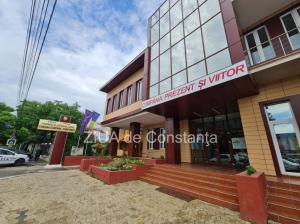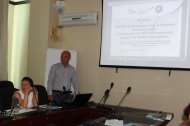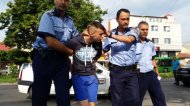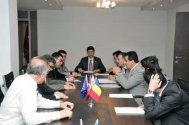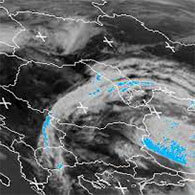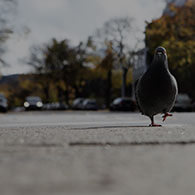2009 Human Rights Report - Romania
2009 Human Rights Report - Romania 5801
Marime text
5801
Marime text
2009 Human Rights Report
Romania
Romania is a constitutional democracy with a multiparty, parliamentary system and a population of approximately 21.4 million. The bicameral parliament (Parlament) consists of the Senate (Senat) and the Chamber of Deputies (Camera Deputatilor); both are elected by popular vote. The June European parliamentary (EP) elections and November-December presidential elections were judged generally free and fair. Civilian authorities generally maintained effective control of the security forces.
There were reports that police and gendarmes mistreated and harassed detainees and Roma. Prison conditions remained poor. The judiciary lacked impartiality and was sometimes subject to political influence. A restrictive religion law continued to limit freedom of religion. Property restitution remained extremely slow, and the government failed to take effective action to return Greek Catholic churches confiscated by the former communist government in 1948. Government corruption remained a widespread problem. There were continued reports of violence and discrimination against women as well as child abuse. Persons were trafficked for labor, sexual exploitation, and forced begging. Neglect of and inadequate assistance for persons with disabilities was also reported. Extensive discrimination and occasional violence against Roma continued to be a problem. Gay, lesbian, bisexual and transgender persons continued to suffer societal discrimination. Discrimination against persons with HIV/AIDS, particularly children, remained a problem.
RESPECT FOR HUMAN RIGHTS
Section 1 Respect for the Integrity of the Person, Including Freedom From:
a. Arbitrary or Unlawful Deprivation of Life
The government or its agents did not commit any politically motivated killings; however, there were reports that police officers shot and killed two men.
On August 2, a police officer shot a 28-year-old man, Ciprian Musat, in the village of Oancea, Galati County, reportedly because the latter was listening to loud music. According to witnesses, after the officer warned him that he was disturbing public order, the victim answered with offensive language. The officer went home, returned 10 minutes later, and shot the man, who died a day later. The police officer was arrested.
On September 26, a police officer of the Bucharest police shot a 31-year-old man, Sorin Parvu, in Braila, having mistaken him for an individual who had committed a murder. Parvu died following day. The police officer was under investigation.
There were no developments in the May 2008 case of Vasile Manole, who was shot and killed by a transportation police agent while he was allegedly stealing railroad copper parts in Cernavoda.
The Association for the Defense of Human Rights in Romania- Helsinki Committee (APADOR-CH) asserted in previous years that police made excessive use of firearms in cases of minor crimes. The Romani Center for Social Intervention and Surveys (Romani CRISS) criticized the disproportionate use of force in Roma neighborhoods, including the use of firearms. There were no reports during the year of deaths or injuries in Roma neighborhoods from police use of firearms.
b. Disappearance
There were no reports of politically motivated disappearances.
c. Torture and Other Cruel, Inhuman, or Degrading Treatment or Punishment
The constitution and law prohibit such practices; however, there were numerous nongovernmental organizations (NGOs) and media reports of police mistreatment and abuse of detainees and Roma, primarily through excessive force and beatings by police. There were also reports of mistreatment of abandoned children with physical disabilities in state institutions and of prolonged incarceration for misbehavior within state orphanages.
Pretrial detainees complained to human rights NGOs of police beatings during pretrial investigations.
Romani CRISS and other NGOs continued to claim that police used excessive force against Roma and subjected them to maltreatment and harassment. Romani CRISS also criticized the police raids in Roma communities, which involved large numbers of policemen, often accompanied by special intervention police.
In some instances of police violence against Roma, police claimed they used force in self-defense, responding to alleged hostility by Romani communities during police raids in search of criminal offenders.
APADOR-CH reported that an individual, Emil Baboi, alleged that during the night of January 5, he was taken to Bucharest precinct 9, where the police officers on duty handcuffed and beat him for several hours and then released him in the morning. Some days later, one of the police officers declared that Baboi had been beaten by somebody else before being brought to the police headquarters. Baboi filed a complaint in the court of Bucharest Sector 2.
Romani CRISS reported that, on July 26, police raided a Roma neighborhood in Piatra Neamt, injuring six Roma. In addition, 20 Romani persons, most of them children, women, and elderly, were affected by the tear gas used by the police during the raid. Romani CRISS contacted a lawyer to represent the victims in court.
NGOs, including Amnesty International, stated that laws on police use of firearms had not been brought into line with international standards.
There were no developments in the following 2008 cases of alleged police beatings: an individual in Campulung Muscel in April; a group of Roma in Satu Mare in May and July; and an individual in Bucharest in August. There also were no developments reported pertaining to violence during police raids on Romani communities in Liesti, Galati County, and in Ciurea, Iasi County, in 2007.
There were no developments in the 2007 case of three police officers who allegedly assaulted a university lecturer, Serban Marinescu.
There was no further development in the 2007 case of a police officer from Bucharest police precinct 22 who allegedly beat two persons.
ACCEPT, an NGO fostering rights for lesbian, gay, bisexual, and transgender (LGBT) persons, complained that police singled out LGBT community members for violence and harassment (see section 6).
In 2008 the European Court on Human Rights (ECHR) issued judgments that found seven violations by the country of the prohibition of inhuman or degrading treatment under the European Convention on Human Rights.
Prison and Detention Center Conditions
Prison conditions remained harsh and generally did not meet international standards. The government permitted monitoring visits by independent human rights observers and such visits occurred during the year. During the year authorities improved conditions in some prisons.
At the end of December, according to the Ministry of Justice, National Administration of Penitentiaries, there were 26,750 persons, including 470 minors, in prison or juvenile detention facilities in a system with a stated capacity of 33,951. Although overcrowding did not represent a serious problem overall, there were prisons where the standard of 43 square feet per prisoner, recommended by the Council of Europe's Committee for the Prevention of Torture (CPT), was not observed. APADOR-CH called for the adoption of legislation to make this recommendation mandatory.
During the year APADOR-CH visited several prisons, including some it had visited in previous years, and noted that, despite some improvements, in many cases conditions continued to be poor. Sanitation and hygiene in prisons did not meet international standards. Medical facilities were not sufficient to care for all prisoners and detainees, and access to health care was limited by a lack of doctors. Heating and hot water were not available in several facilities, mattresses were old and rotten, and lighting was poor. In many penitentiaries prisoners complained about the insufficient availability of medications and medical treatment.
APADOR-CH reported that prison meals did not provide the minimum necessary calories, water at some prisons was unsuitable for drinking and in many facilities the kitchens were infested with mold. APADOR-CH also stated that daily activities, work opportunities, and educational programs continued to be insufficient. The government continued efforts, including partnerships with NGOs, to alleviate harsh conditions, improve the condition of detention rooms, provide more daily activities, training courses, and educational programs available to prisoners, and deter the spread of HIV and tuberculosis. However, programs to prevent the spread of HIV, sexually-transmitted and infectious diseases were scarce. In September the representative for Romania of the World Health Organization (WHO) declared that the tuberculosis control program was successfully implemented in penitentiaries, and the percentage of prisoners suffering from tuberculosis decreased to 2 percent. Most of the prisons visited by APADOR-CH had improved the conditions of confidentiality of discussions between prisoners and their lawyers.
Media and human rights organizations reported that the abuse of prisoners by authorities and other prisoners continued to be a problem. According to media and NGO reports, prisoners frequently assaulted and abused their fellow inmates, and prison authorities tried to cover up such incidents. During the year media reported such cases in the penitentiaries in Codlea, where fights among prisoners took place and a prisoner was killed by his cellmate in May, and Poarta Alba, where a prisoner was killed by another prisoner in April. There were media reports that two prison guards stole meat from the prisoners' rations in Jilava prison.
There were no developments reported regarding a June 2008 visit by APADOR-CH and the Center for Legal Resources (CRJ) representatives and a 2007 visit by the justice minister to the Aiud penitentiary, which revealed low food quality, poor hygiene in detention areas, inadequate medical assistance, and inmates who were not aware of the educational programs available to them in prison.
There were no developments in the 2007 death of a prisoner in the Rahova prison hospital in which APADOR-CH asserted that medical negligence may have played a role.
APADOR-CH continued to call for the establishment of a joint medical commission of the Ministries of Justice and Health to investigate the causes of deaths in prisons.
According to APADOR-CH, the practice of labeling certain prisoners as "dangerous" remained a problem in the absence of clear standards for such classification. Prisoners labeled dangerous were subjected to a variety of restrictions beyond those experienced by the general prison population and had no right to appeal that determination. NGOs also criticized the practice of subjecting prisoners to multiple punishments for a single act of misbehavior.
APADOR-CH continued to criticize the conditions in police detention facilities, noting poor sanitation conditions, surveillance equipment in detention rooms, lack of natural light, and the absence of activities for those detained.
Many police detention facilities and some prisons did not provide for the confidentiality of discussions between prisoners or detainees and their lawyers in person or via telephone.
The government permitted prison visits by human rights observers, foreign government officials, and media representatives, and such visits took place during the year.
Regulations for religious assistance in prisons allow unrestricted access of all religious groups to prisoners. Orthodox priests no longer attended meetings between representatives of other faiths and prisoners.
d. Arbitrary Arrest or Detention
The constitution and law prohibit arbitrary arrest and detention, and the government generally respected these prohibitions.
Role of the Police and Security Apparatus
The Ministry of the Interior and Administration is responsible for the national police, the gendarmerie, and the border police; the Office for Immigration; the General Directorate of Information and Internal Protection, which oversees the collection of intelligence on organized crime and corruption; and the General Anticorruption Directorate. The national police agency is the Inspectorate General of Police, which is divided into specialized directorates and has 42 regional directorates for counties and the city of Bucharest. The internal intelligence service also collects information on major organized crime, major economic crimes, and corruption. Starting with March 2009, the Special Protection and Intervention Group is part of the Gendarmerie.
While police generally followed the law and internal procedures, police corruption remained a significant reason for citizens’ lack of respect for the police and led to a corresponding disregard for police authority. Low salaries and the absence of incentives and bonuses led to personnel shortages and contributed to the susceptibility of individual law enforcement officials to bribes. Instances of high-level corruption were referred to the National Anticorruption Directorate, which continued to publicize its anticorruption telephone hot line to generate prosecutorial leads for corruption within the police.
Police impunity remained a problem. Complaints of police misconduct were handled by the internal disciplinary councils of the units where the reported officers worked.
During the first 11 months of year, there were 131 complaints against the police for human rights violations, of which 80 were submitted to the prosecutor's office and 51 to the police. Of the latter, 29 cases were submitted to the prosecutor's office for further investigation, 14 were closed for lack of evidence, and eight cases were under investigation for misconduct. During the same period, 167 police officers were under investigation for human rights violations: 83 for abuse in the line of duty; 69 for abusive behavior; 13 for illegal arrest and abusive investigation, two for causing fatal injuries. During the same period, there were 13 complaints of human rights violations against the gendarmerie: nine were under criminal investigation, two cases were closed and the gendarmes were cleared of criminal charges, and in two cases the gendarmes were cleared of criminal charges but received administrative fines.
Police reform continued during the year. The police increased hiring of women and minorities. According to police statistics, 10.5 percent of the 59,195 total police force were female police officers and 1.1 percent represented members of ethnic minorities as of January. Police also used Romani mediators to facilitate communication between Roma and the authorities and assist in crisis situations.
Arrest Procedures and Treatment While in Detention
The law provides that only judges may issue detention and search warrants, and the government generally respected this provision in practice. The law requires authorities to inform detainees at the time of arrest of the charges against them and their legal rights. Police must notify detainees of their rights in a language they understand before obtaining a statement. Detainees must be brought before a court within 24 hours of arrest. The law provides for pretrial release at the discretion of the court. A bail system also exists; however, it was seldom used in practice. Detainees have a right to counsel and generally had prompt access to counsel and to their families. Indigent detainees were provided legal counsel at public expense.
The law allows police to take any person who endangers the public, other persons, or the social order to a police station. There were allegations that police often used this provision to detain persons for up to 24 hours. APADOR-CH repeatedly criticized this provision, stating that it leaves room for abuse. Human rights NGOs complained that the authorities were frequently able to listen to discussions between detainees and their attorneys in police detention facilities
A judge may order pretrial detention for periods of up to 30 days, depending upon the status of the case. The court may extend these time periods; however, pretrial detention may not exceed 180 days. Courts and prosecutors may be held liable for unjustifiable, illegal, or abusive measures.
In 2008 the ECHR issued judgments that found 17 violations by the country of the right to liberty and security as provided by the European Convention on Human Rights.
Amnesty
During the year President Basescu issued pardons to six mothers (each with four to nine children) and to four persons for medical or age-related reasons.
e. Denial of Fair Public Trial
The constitution provides for an independent judiciary, and the government generally respected judicial independence in practice. However, the judiciary lacked the public's trust that judges were accountable and did not serve political or financial interests. There was a widespread public perception that the judiciary was corrupt, slow, and often unfair.
The law establishes a four-tier legal system composed of lower courts (judecatorie), intermediate courts (tribunals), appellate courts, and the High Court of Cassation and Justice. There is a separate Constitutional Court composed of nine members who are limited to a single nine-year term. The president, the Senate, and the Chamber of Deputies appoint three members each. The Constitutional Court validates electoral results and makes decisions regarding the constitutionality of laws, treaties, ordinances, and internal rules of the parliament. A prosecutor's office is associated with each court. The court having original jurisdiction over a case is determined by the nature of the offense and by the position a defendant may hold in public service. According to a European Commission report released in July, judicial reforms "have not yet taken firmly root and shortcomings persist." The commission also criticized the fact that "the jurisprudence of the Romanian judiciary is contradictory, generating undue delays."
NGOs and public officials frequently criticized the judicial system during the year. One cause was the failure of the judiciary's oversight body, the Superior Council of Magistrates (CSM), to create procedures for addressing potential conflicts of interest among its members. The CSM's practice of delegating magistrates to nonjudicial positions within the judiciary and appointing them to various government agencies also contributed to depleting the already understaffed courts and prosecutors' offices. The European Commission report mentioned the adoption of a new human resource strategy for the judiciary and that "some steps have been taken as regards the staffing situation in courts and prosecutors' offices at local level," stressing, however, that "further improvements" were necessary. The general prosecutor criticized the High Court of Cassation and Justice for frequently returning case files to prosecutors for additional investigation rather than ruling on the case as presented. Such requests contributed to frequent delays in court procedures, increasing the chances of political interference. Observers also expressed concern over a lack of judicial impartiality, since some members of parliament continued to practice as defense attorneys, both personally and through their law firm associates.
In 2008 the ECHR issued judgments that found 77 violations by the country of the right to a fair trial, 25 violations by the country involving length of proceedings, and two violations of the right to an effective remedy as provided by the European Convention on Human Rights.
Trial Procedures
Trials are open to the public. The law does not provide for trial by jury. The law provides for the right to counsel and a presumption of innocence until a final judgment by a court. The law requires that the government provide an attorney to juveniles in criminal cases; in practice, local bar associations provided attorneys to indigents and were compensated by the Ministry of Justice. Defendants have the right to be present at trial, to consult with an attorney in a timely manner, to confront or question witnesses against them, to have a court-appointed interpreter, and to present witnesses and evidence on their behalf. Defendants and their attorneys have access to government-held evidence relevant to their cases. Both prosecutors and defendants have a right of appeal.
The law provides for the investigation by civilian prosecutors of crimes by the national police and prison employees. Military prosecutors continued to try cases that involved "state security" involving military personnel. Other cases involving "state security" but not military personnel were tried by civilian prosecutors; military courts do not try civilians according to the law. Crimes by the gendarmerie continued to fall under military jurisdiction. In previous years, local and international human rights groups criticized the handling of cases by military courts, claiming that military prosecutors' investigations were unnecessarily lengthy, biased, and often inconclusive. Some lawyers claimed that these investigations only served to discredit the reputations of their clients rather than hold them accountable for any actual wrongdoing. The law extends the rights to a fair trial to all citizens.
Political Prisoners and Detainees
There were no reports of political prisoners or detainees.
Civil Judicial Procedures and Remedies
Civil courts functioned in every jurisdiction. Civil courts do not use a jury and function in a similar fashion as the criminal courts. Crime victims can assert civil remedies in either civil courts or criminal courts if they choose, which could result in a combined civil/criminal trial to resolve all issues arising from the criminal case. The Ministry of Justice administers civil courts and the CSM oversees the magistrates. Civil courts operated with the same degree of judicial independence as criminal courts.
Litigants sometimes encountered difficulties enforcing civil verdicts because the procedures for enforcement of judgment orders were impractical and caused delays.
Administrative and judicial remedies were available for violations of civil rights by government agencies.
Property Restitution
The law allows for property restitution and establishes fines for officials who hinder the process. The law provides for a Property Fund of approximately 14 billion lei ($4.8 billion) to compensate owners of properties that cannot be returned in kind. Because of this delay, the Fund was not yet listed on the stock exchange, meaning shares were not traded on the stock exchange, but on the gray market at artificially low prices. A government ordinance provides for cash payments in lieu of restitution of up to about 500,000 lei ($173,000), paid over a two-year period. Claims in excess of this amount are to be paid with shares in the property fund. The restitution process continued to be very slow during the year, and the large majority of restitution cases remained unresolved.
Former owners' organizations continued to assert that inertia hindered property restitution at the local level. In some cases local government officials continued to delay or refuse to provide necessary documents to former owners filing claims. They also refused to return properties in which county or municipal governments had an interest.
In February a law came into effect that amended the nationalized houses law so as to bar the restitution of houses that were bought by tenants in good faith.
The ECHR ruled in favor of the former owners in a large number of restitution cases, which represented the majority of applications to the ECHR from the country. In 2008 the ECHR issued judgments that found 129 violations by the country involving the protection of property under the European Convention on Human Rights. In April the Council of Europe released a report which noted that the country does not observe the three-month deadline for paying compensation ordered by the ECHR. According to the report, in 2008 only 5 percent of ECHR-ordered compensation was paid within the three-month time period provided in the court's final judgments.
Of the 201,750 claims filed between 2001 and 2003 for restitution of buildings, by the end of the year 117,442 were resolved: 43,047 were rejected; 7,898 claims qualified for combined measures (i.e., restitution in kind plus compensation in stock from the property fund or in other assets or services); 49,637 claims qualified for restitution in equivalent; and 16,860 claims were resolved by return of the properties in kind.
There were numerous disputes over many churches that the Orthodox Church did not return to the Greek Catholic Church despite court orders to do so.
f. Arbitrary Interference with Privacy, Family, Home, or Correspondence
The constitution prohibits such actions, and the government generally respected these prohibitions in practice. Nevertheless, there was a widespread perception that illegal surveillance still existed.
The law permits the use of electronic interception both in criminal cases and for national security purposes. A judge has to issue a warrant upon request from the prosecutor investigating the case. In exceptional circumstances, when delays in getting the warrant would seriously affect the criminal investigation, prosecutors may begin interception without a judicial warrant. Following this, however, a request for authorization must be submitted within 48 hours. Some human rights NGOs have noted that, under the national security law, a prosecutor may authorize the issuance of a warrant for an initial period of six months, which can be extended indefinitely in three-month increments without judicial approval. There were media reports of electronic interception used outside of these legal parameters.
The lawsuit filed by businessman Dinu Patriciu against the Romanian Intelligence Service (SRI) for illegally tapping his telephones continued. In 2007 the Bucharest Tribunal ordered the SRI to pay Patriciu 50,000 lei ($17,300) in compensation, and the ruling was upheld on appeal. The SRI appealed the ruling to the High Court of Cassation and Justice and a decision was pending at the year's end.
According to Romani CRISS and media reports, evictions of members of the Romani community continued to occur in Bucharest, Cluj, and other localities during the year.
On June 25, 13 Romani families were evicted by gendarmes from a building in Cluj that was restituted to the rightful owner.
On August 26, the mayor's office of Bucharest Sector 2 evicted 42 Romani who were illegally living in a building in the sector.
In 2008 the ECHR issued judgments that found seven violations by the country of the right to respect for family and private life as provided by the European Convention on Human Rights.
Section 2 Respect for Civil Liberties, Including:
a. Freedom of Speech and Press
The law provides for freedom of speech and of the press, and the government generally respected these rights in practice. Journalists and private citizens could criticize government authorities, including those at senior levels. There were isolated cases of authorities intimidating or censoring the press or attacking journalists.
Laws restricting freedom of speech continued to cause concern among the media and NGOs. Insulting state insignia (the coat of arms, national flag, or national anthem) is also an offense punishable by imprisonment; however, there were no reports of prosecutions or convictions under these provisions during the year. The religion law includes a provision that forbids acts of "religious defamation" and "public offense to religious symbols"; there were no reports of prosecutions or convictions under this law's provisions during the year.
The law prohibits denial of the Holocaust in public; however, there were no prosecutions under this statute during the year.
In 2008 the ECHR issued judgments that found two violations by the country of freedom of expression as provided under the European Convention on Human Rights.
The independent media was active and expressed a wide variety of views without restriction. However, politicians and others with close ties to various politicians and political groups either owned or indirectly controlled numerous media outlets outside of the capital, and the news and editorial tone of these outlets frequently reflected the views of the owners. The tendency towards the concentration of national news outlets in the hands of a few wealthy individuals continued.
During the year there were a number of instances when public officials and politicians insulted or harassed journalists.
Starting April 6, the press distribution company owned by the mayor of Constanta, Radu Mazare, and the local president of the County Council, Nicusor Constantinescu, blocked the distribution of Ziua de Constanta newspaper, which had criticized local authorities.
On June 6, Madalina Radulescu, news director of the state-owned public television channel, TVR 1, threatened producer Doina Georgescu and editor Adriana Gulea with salary cuts and dismissal for refusing to sign off on a news bulletin featuring an election-related interview with a vice president of the Social Democratic Party (PSD). The interview was aired right before the European Parliament elections, in violation of regulations against campaigning the day before elections. TVR's ethics committee found that Radulescu made an incorrect editorial decision and had improperly pressured the two journalists. TVR 1's president-–a former PSD secretary general-–did not pursue disciplinary action against Radulescu.
On July 28, Tourism Minister Elena Udrea used a threatening tone when she told the editor in chief of the sports daily Gazeta Sporturilor that she would "personally take care of him." The editor had disclosedcontroversial expenses made by the former youth and sports minister who was a member of the same political party as Udrea.
In February the ECHR ruled that the country should pay Petre Mihai Bacanu, the honorary director of the newspaper Romania Libera, 8,000 euros ($11,000) because his rights to freedom of speech and to a fair trial were violated. Domestic courts had ordered in 2003 that Bacanu and Romania Libera pay compensation to a former prime minister following Romania Libera's publication of several articles critical of a contract he negotiated with a controversial businessman to set up the Romanian Investment Bank.
Internet Freedom
There were no reported government restrictions on access to the Internet or substantiated reports that the government monitored e-mail or Internet chat rooms. Individuals and groups could engage in the peaceful expression of views via the Internet, including by e-mail.
The Internet was widely available in the country, and costs decreased due to competition. Internet cafes were widely available nationwide. According to International Telecommunication Union statistics for 2008, approximately 29 percent of the country's inhabitants used the Internet.
Academic Freedom and Cultural Events
There were no government restrictions on academic freedom or cultural events; however there were reports that a few local officials interfered with these activities.
In August the mayor of Onesti, Emil Lemnaru, stopped a conference launching a book called Biometric Dictatorship, which claimed that the data storage on chips was dangerous for humankind. Human rights NGOs protested, stating that the move violated freedom of expression.
In August a local counselor in Oradea canceled a concert by the rock band God Dethroned, citing citizens' complaints that it would be a Satanic concert.
Freedom of Peaceful Assembly and Association
Freedom of Assembly
The law provides for freedom of assembly, and the government generally respected this right in practice. The law provides that unarmed citizens can assemble peacefully but states that meetings must not interfere with other economic or social activities and may not be held near locations such as hospitals, airports, or military installations. Organizers of public assemblies must request permits three days in advance, in writing, from the mayor's office of the locality where the gathering would occur.
Freedom of Association
The constitution provides for freedom of association, and the government generally respected this right in practice. The law prohibits fascist, communist, racist, or xenophobic ideologies, organizations, and symbols (such as statues of war criminals on public land). Political parties are required to have at least 25,000 members to have legal status, a number some NGOs criticized as excessively high.
c. Freedom of Religion
The constitution and the law provide for freedom of religion, and the government generally respected this right in practice; however, there were some restrictions, and several minority religious groups continued to claim credibly that government officials and Orthodox clergy impeded their proselytizing and interfered with other religious activities.
Under the religion law, the government implemented a discriminatory three-tiered system of recognition: "grupari religioase" (religious groups that are not legal entities), religious associations, and religions. Gruparile religioase are groups of individuals who share the same faith but do not receive any support from the state or tax exemptions. Religious associations are legal entities that do not receive government funding, have to be registered as such in a religious association registry, and are exempted from taxes only for places of worship. Religious associations must have 300 members from the country and are required to submit members' personal data to register, in contrast to nonreligious associations that can register with only three members. To receive religion status, a religious association must demonstrate 12 years of continuous religious activity and meet a membership threshold of 0.1 percent of the total population (approximately 22,000 members).
The law does not prohibit or punish assembly for peaceful religious activities and, unlike in previous years, minority religious groups did not complain that local authorities or Orthodox priests prevented religious activities from taking place.
Some minority religious groups continued to allege that local authorities in some cases delayed or opposed granting construction permits for unjustified reasons. A Greek Catholic community in Pesteana, established in 2005, continued to claim that it faced discrimination and harassment. Tensions also continued over a lawsuit between the Orthodox and the Greek Catholic Churches regarding the latter's access to the local cemetery. At the end of February, the Appellate Court in Pitesti ruled that the Greek Catholic priest could celebrate religious services in the cemetery only for those who die as Greek Catholic believers and not for any of their relatives who died as members of the Orthodox faith. The Greek Catholic community expressed dissatisfaction with the ruling.
In contrast with previous years, minority religious groups did not report difficulties in obtaining approval to use public halls for religious activities. Minority religious groups reported a reduced number of instances of Orthodox clergy harassing members of other faiths. Several minority religious groups made credible complaints that local police and administrative authorities in some instances appeared to tacitly support societal campaigns against proselytizing. Members of various minority religions continued to report that their charitable programs in children's homes and shelters were perceived as proselytizing directed at adherents of the Orthodox Church.
A Roman Catholic Csango community, an ethnic group that speaks a Hungarian dialect, continued to complain that its members were unable to hold regular religious services in their mother tongue because of the opposition of the Roman Catholic Bishopric of Iasi. On October 17, however, there was progress in addressing these complaints when a mass in the village of Vladnic, Bacau County, was held in three languages (Romanian, Hungarian, and Latin).
Although the religion law entitles religious denominations to bury their believers in other denominations' cemeteries if they lack their own cemetery or a communal (public) cemetery, in numerous communities Orthodox priests reportedly continued to deny permission to the Greek Catholic Church, the Baptist Church, and the Adventist Church to bury their members in either confessional or even some communal cemeteries.
Several religious groups reported that the access of religious groups to detention facilities continued to improve. Regulations for religious activity in prisons provide for unrestricted access of recognized religions and religious associations to any place of detention, even if their assistance is not specifically requested. There were no reports by religious groups of problems with access to detention facilities during the reporting period.
Only the 18 recognized religious groups have the right to teach religion in public schools. To opt out of religion classes, students must submit a request in writing. Some minority recognized religions continued to complain that public schools sometimes refused to offer classes in their religious beliefs and that there were cases of children who were pressured to attend Orthodox religion classes.
A 2006 National Council for Combating Discrimination (CNCD) decision to ask the Ministry of Education to remove religious symbols from school classrooms except where religious classes were taught was not enforced because of several ongoing lawsuits. The Ministry of Education, the Orthodox Church, and several NGOs challenged the CNCD decision. On June 11, the High Court of Cassation ruled in favor of their challenge.
The restitution law permits religious denominations to reclaim previously nationalized properties that housed schools, hospitals, or cultural institutions; however, implementation of the law was slow during the year. Of the 14,716 claims for restitution of religious property since its establishment in 2003, the National Authority for Property Restitution (ANRP) returned 1,417 properties by the end of the year; another 407 cases were approved to receive compensation; 403 claims were rejected.
Property restitution was particularly important for the Greek Catholic Church, whose properties, including churches, were confiscated during the Communist regime. Greek Catholic churches were given to the Orthodox Church after their forced merger in 1948, and many other Greek Catholic Church properties were taken over by the government. Since 2003 the government returned 128 out of 6,723 total properties claimed by the Greek Catholic Church.
The Orthodox Church continued to resist the return of churches it acquired from the Greek Catholic Church. While the law permits the Greek Catholic Church to take court action whenever its dialogue with the Orthodox Church over church restitution fails, lawsuits were lengthy because of delayed hearings and repeated appeals. However, as in recent years, the number of rulings during the year in favor of the Greek Catholic Church reportedly increased.
By year's end the Orthodox Church had returned fewer than 200 of approximately 2,600 churches and monasteries claimed by the Greek Catholic Church. The Orthodox metropolitan of Banat and bishops of Caransebes and Oradea continued to maintain positive relations with the Greek Catholic Church on restitution issues; however, most other Orthodox Church representatives refused to return properties, even when ordered to do so by a court, generating tension in many localities. Because of the failure to get back its churches, the Greek Catholic Church continued in some localities to hold religious services in the open, for example, in Sisesti, Maramures County, where a lawsuit over the former Greek Catholic church has been underway for 16 years.
In April in Sapanta, Maramures County, the Orthodox Church demolished the steeple of a formerly Greek Catholic church now in Orthodox hands. The Orthodox Church announced it was rebuilding the steeple as part of a renovation project partially funded by the Ministry of Culture. A lower court injunction to suspend the demolition and construction works was issued in April and then rejected by the Maramures County tribunal in July.
On October 3, an Orthodox priest set fire to an historic formerly Greek Catholic wooden church built in 1777, in Soconzel, Satu Mare County, allegedly by accidentally throwing a cigarette butt in the dry grass in the church yard.
In Zalau, Salaj County, the Orthodox Bishopric of Salaj refused to hold alternate services with the Greek Catholic Church in the chapel of a hospital. Eventually, the hospital manager offered a separate room to the Greek Catholic Church.
The Orthodox Church continued to demolish Greek Catholic churches under various pretexts and also used other methods to shield churches from restitution. In May 2008 in Ungheni, Mures County, the Orthodox Church began to demolish an 18th-century Greek Catholic church after constructing a new Orthodox structure around the old church. A court injunction obtained by the Greek Catholic Church stopped the demolition, but construction work around the old church continued.
Similar demolition cases occurred in Badon, Salaj County, in 2007.
In September the Orthodox Church resumed pressure for the adoption of legislation that would resolve patrimonial disputes between the Orthodox and Greek Catholic churches in line with the "confessional reality in the country," i.e., by distributing the former Greek Catholic properties based on the percentage of Orthodox versus Greek believers in the particular locality in question. The Greek Catholic Church complained in a communiqué, released on October 5, about the Orthodox Church's hostile attitude over the past 20 years, arguing that the so-called "confessional reality in the country," is the result of over 40 years of communist persecutions and of 20 years of attempts to eliminate the Greek Catholic Church from the religious life. It also accused the Orthodox Church of harassment and misinforming public opinion.
The Greek Catholic Church complained that in Cluj County the authorities delayed the restitution of its land in the localities of Feleacu and Morlaca. Other places where local authorities did not restore former Greek Catholic land include Chiheru de Jos, Maramures County, Rozavlea, Maramures County, Sapanta, Maramures County, Ungheni, Maramures County, Valcau de Sus and Valcau de Jos, Salaj County, Rozavlea, Maramures County, Haieu, Bihor County, Moisei, Maramures County, Tasnad, Satu-Mare County, Nadar, Bihor County, Salistea de Sus, Maramures County and Borsa , Maramures county. According to members of the Greek Catholic Church, in Budesti, Maramures County, local authorities refused to return farm and forest land to the Greek Catholic Church and proposed instead to give the church land that had belonged to Jewish victims of the Holocaust. The Greek Catholic Church rejected the proposal.
The historical Hungarian churches, including the Hungarian Roman Catholic and the Hungarian Protestant Reformed, Evangelical, and Unitarian churches, received a small number of their confiscated properties from the government. By the end of the year, Hungarian churches had received 870 of the approximately 2,700 properties they claimed under the law on return of religious property. During the year the Hungarian Churches received 64 properties.
In December responsibility for oversight of the Religious Affairs Department was shifted from the Ministry of Culture to the prime minister. Media alleged that the move was the result of the Orthodox Patriarch's direct intervention, following the appointment of an ethnic Hungarian with a different religious affiliation at the helm of the culture ministry. The Orthodox Church denied these assertions.
According to Roman Catholic authorities and media reports, the issue of the 19-story building to be constructed within the protection zone around the Roman Catholic Saint Joseph Cathedral in Bucharest, a designated historical monument, remained unresolved. The church asserted that construction of the building coulddamage the cathedral's foundation. In 2007 a court in Dolj County suspended this construction. On June 25, a court of appeal in Ploiesti overturned the ruling, thereby allowing the construction to continue. The decision of the appeals court generated widespread protests by the Roman Catholic Church, which urged authorities to find a solution. In July, the church filed a request at the High Court of Cassation and Justice (ICCJ) to review the case, and the ICCJ sent it to the Ploiesti Court of Appeal. In October the Mayor-General of Bucharest urged the developer to stop construction work and filed a complaint with the Bucharest court, challenging the legality of the concession contracts for the land on which the 19-story building was erected.
Societal Abuses and Discrimination
According to the 2002 census, the Jewish population numbered 5,785. Acts of anti-Semitism, including vandalism against Jewish sites, continued during the year. In most cases the Federation of Jewish Communities notified authorities, but perpetrators were often not identified.
The NGO Center for Monitoring Anti-Semitism in Romania (MCA Romania) noted that authorities tended to play down anti-Semitic vandalism, usually attributing the acts to children, drunks, or persons with mental disorders. MCA Romania noted that Jewish establishments appeared to be targets of choice for vandals and asserted that investigations of such acts were not thorough. MCA Romania also criticized the lack of prosecutions as failing to deter future acts.
Between April 12 and 14, 20 tombstones were destroyed in a Jewish cemetery in Botosani. Police named as suspects four students between the ages of 14 and 16, who reportedly acted under the influence of alcohol. The students were still under investigation for desecration of graves at the end of the year.
Unidentified perpetrators painted swastikas and anti-Semitic graffiti on the walls of a building in Bucharest in May and on the fence of a Jewish cemetery in Bucharest in June.
On July 18, at a fashion show at the beach resort of Mamaia, the mayor of Constanta, Radu Mazare, marched on a public stage dressed as a Nazi officer, accompanied by his 15-year-old son dressed as a Nazi soldier. The Federation of Jewish Communities in Romania, the Simon Wiesenthal Center, MCA Romania, the National Antidiscrimination Council (CNCD), and others protested the action. On July 20, MCA Romania filed a complaint with the Prosecutor General's Office against Mazare, since the public display of Nazi symbols is illegal. On July 22, Mazare apologized for his gesture. The Prosecutor General's Office answered a September 24 inquiry by the MCA by saying that the case was in the Prosecutor's Office in Constanta and investigation was in a preliminary stage. On December 3, the MCA requested again an update on the development of the investigation. As of year's end, Mazare was not charged.
There were no reported developments in the October 2008 desecration of 131 gravestones at a Jewish cemetery in Bucharest, in which the police named as suspects four students between the ages of 13 and 15.
In December MCA warned that anti-Semitic, racist, xenophobic, and nationalistic views continued to be distributed via the Internet.
During the year the extremist press continued to publish anti-Semitic articles. The New Right movement continued to foster the ideas of the Iron Guard (an extreme nationalist, anti-Semitic, pro-Nazi group that existed in the country in the interwar period) in the media and on the Internet. The New Right also republished inflammatory books from the interwar period.
Authorities occasionally investigated and prosecuted offenders, but all court cases resulted in acquittals.
During the year publications of the extreme nationalist Greater Romania Party (PRM), headed by Corneliu Vadim Tudor, continued to carry statements and articles containing strong anti-Semitic attacks.
The law prohibits denial of the Holocaust in public; however there were no prosecutions under this statute during the year.
During the year anti-Semitic views and attitudes were expressed on the talk shows of private television stations, which failed to respond to complaints filed by Jewish organizations regarding such views. Extremists continued to publicly deny that the Holocaust occurred in the country or that the country's leader during World War II, Marshal Ion Antonescu, participated in Holocaust atrocities in territory administered by the country.
On January 17, the country's Consulate General in New York City sponsored a seminar at which a well-known Holocaust denier distributed articles he had written denying the Holocaust and containing anti-Semitic statements.
The Elie Wiesel Institute for the Study of the Holocaust in Romania complained to the city council of Bucharest about anti-Semitic events taking place in Bucharest in institutions that fall under the purview of the council. For example, in January the Bucharest History Museum hosted two book launches and a conference at which anti-Semitic and Holocaust denying views were aired. In March a cultural center hosted the launching of a book presenting the views of the Legionnaires, an anti-Semitic group that carried out pogroms against Romanian Jews in the interwar period. The Bucharest city government responded to complaints by stating that the museum merely rented the premises to the sponsors of the events.
The government continued to make progress in its effort to expand education on the history of the Holocaust in the country and included the Holocaust in history courses covering World War II in the seventh through 12th grades.
On various occasions throughout the year, high-level officials continued to make public statements against extremism, anti-Semitism, and xenophobia and criticized Holocaust denial. In January government officials and members of parliament attended and addressed the commemoration of the 1941 pogrom in Bucharest. On October 8, the country commemorated National Holocaust Day with events in several cities, including the president's dedication of a Holocaust memorial in Bucharest.
The law to combat anti-Semitism and prohibit fascist, racist, and xenophobic organizations includes persecution of Roma as well as Jews in its definition of the Holocaust. Approximately 14,000 Roma were killed in the country during that period.
For a more detailed discussion, see the 2009 International Religious Freedom Report at www.state.gov/g/drl/rls/irf.
d. Freedom of Movement, Internally Displaced Persons,
Protection of Refugees, and Stateless Persons
The law provides for freedom of movement within the country, foreign travel and repatriation, and the government generally respected these rights in practice. The government cooperated with the Office of the UN High Commissioner for Refugees (UNHCR) and other humanitarian organizations in providing protection and assistance to refugees, asylum seekers, stateless persons, and other persons in need of international protection.
The law prohibits forced exile, and the government did not employ it.
Protection of Refugees, and Stateless Persons
The country is a party to the 1951 Convention relating to the Status of Refugees and the 1967 Protocol relating to the Status of Refugees. Its laws provide for the granting of asylum or refugee status, and the government has established a system for providing protection to refugees. The law on asylum, based on EU legislation, prohibits the expulsion, extradition, or forced return of any asylum seeker at the country's border or from within the country's territory but extends the application of the exclusion clauses to aliens and stateless persons who planned, facilitated, or participated in terrorist activities as defined by international instruments to which the country is a party.
The law provides for the concept of safe countries of origin, and aliens coming from such countries have their asylum applications processed in an accelerated procedure. Safe countries of origin are considered EU member states as well as other countries that fulfill certain conditions.
In 2008 the government opened an Emergency Transit Center in the city of Timisoara. This is the second facility of its type in the world for the interim receipt of refugees pending processing and final transit to a receiving country. According to the UNHCR, conditions are acceptable.
In practice the government provided protection against the expulsion or return of refugees to countries where their lives or freedom would be threatened on account of their race, religion, nationality, membership in a particular social group or political opinion; however, the UNHCR considered the time limits provided by the law for submitting appeal applications and court procedures to be too short. In 2008 the UNHCR started a program "Quality Initiative," which continued during the year and aimed at improving the quality of decision-making during the asylum procedure. A report, released by the UNHCR in July, revealed that asylum seekers were faced with difficulties in the access to specialized health care, partially because of the lack of interpreters, that social assistance in reception centers, including spare time activities, was insufficient, and that asylum seekers felt they did not receive enough information and legal assistance.
Under the law, refugees and those granted subsidiary protection enjoy equal access to employment, basic services, education, police and courts with citizens. According to an amendment to the citizenship law, those receiving subsidiary protection have to wait for a longer period of time than refugees to acquire citizenship, a provision viewed as discriminatory by the former. The government also has a voluntary repatriation program for refugees and rejected asylum seekers.
According to the Immigration Office, there were 835 applications for asylum and an additional 160 repeat asylum applications during the year. There were no cases of temporary protection to individuals who may not qualify as refugees. However, the government granted a form of protection (refugee status or subsidiary protection) to 94 persons, and "tolerated person" status to 161 persons. (A tolerated person is an alien who no longer has the right to stay in the country, but cannot leave it for objective reasons; tolerated persons have no social-economic rights.) According to the UNHCR, the country hosted 1,596 refugees and 303 asylum seekers at the end of 2008.
Stateless Persons
Citizenship is derived at birth by those who have at least one Romanian parent. The law provides for birth registration as a basic right; however, some children were not registered at birth and were rendered de facto stateless by their lack of and inability to obtain identity documents. According to the country's Immigration Office, there were 306 stateless persons of foreign and national origin at the year's end. According to UNHCR statistics, there were 253 persons recognized as stateless in the country at the end of 2008. However, the country has a substantial Romani population, and according to a survey released by the government in August 2008, 1.5 percent of respondents identifying themselves as Roma lacked birth certificates, while other surveys indicated between 1.9 and 6 percent of Roma--lacked identity cards. While some of these stateless persons were born in the country, limited information was available on the nature of this problem.
Section 3 Respect for Political Rights: the Right of Citizens to Change Their Government
The law provides citizens with the right to change their government peacefully, and citizens exercised this right in practice through periodic, free, and fair elections held on the basis of universal suffrage.
Elections and Political Participation
On November 22 and December 6, the country held national elections for president. Despite some irregularities, including numerous allegations of vote buying and of multiple voting, the elections were generally judged free and fair. In the second round on December 6, incumbent Traian Basescu defeated challenger Mircea Geoana by 50.33 percent to 49.66 percent of votes cast.
On June 7, the country held elections for the European Parliament that were considered free and fair. Again, there were numerous allegations of irregularities such as vote buying, and analysts lamented that only 27.67 percent of eligible voters cast ballots.
Elections to the Romanian parliament, last held in November 2008, are based on a uninominal voting system. Media, NGOs, and government officials criticized the voting system, which assigns parliamentary seats to party members based on a complex formula, for being too difficult for most voters to understand and for awarding seats to party members who finished second or third in their district.
The law requires political parties to register with the Bucharest Tribunal and to submit their statutes, program, and a roster of at least 25,000 signatures. These 25,000 "founding members" must be from at least 18 counties, including Bucharest, with a minimum of 700 persons from each county. The party statutes and program must not include ideas that incite war, discrimination, hatred of a national, racist, or religious nature, or territorial separatism.
Organizations of ethnic minorities can also field candidates in elections if they meet requirements similar to those for political parties. The law defines "national minorities" as only those ethnic groups represented in the Council of National Minorities. The law requires that the organizations that are not represented in the parliament meet requirements that are more stringent than those of minority groups already represented in parliament. Such organizations must provide the Central Electoral Bureau a list of members equal to at least 15 percent of the total number of persons belonging to that ethnic group according to the most recent census. If 15 percent represents more than 20,000 persons, then at least 20,000 names from at least 15 counties plus the city of Bucharest, with no fewer than 300 persons from each county, must be submitted.
While the law does not restrict women's participation in government or politics, societal attitudes presented a significant barrier. There were 38 women in the 334-seat Chamber of Deputies and eight women in the 137-seat Senate. At year's end there was only one woman in the 17-member cabinet and no women among the prefects (governors) of the 42 counties.
According to the constitution, each recognized ethnic minority is entitled to have one representative in the Chamber of Deputies if the minority's organization cannot obtain the 5 percent of the votes needed to elect deputies outright, but only if the organization in question gets 10 percent of the average number of votes nationwide necessary for a deputy to be elected. Organizations representing 18 minority groups received deputies under this provision. There were49 members of minorities in the 471 seat parliament, nine in the upper house and 40 in the lower house. At the end of the year, there were four members of minorities (all ethnic Hungarians) in the 17-member cabinet. Ethnicity data was not available for members of the Supreme Court.
Ethnic Hungarians, represented by the Democratic Union of Hungarians in Romania (UDMR) party, were the only ethnic minority to gain parliamentary representation by passing the 5 percent threshold. Only one Romani organization, the Roma Party-Pro Europe, was represented in parliament. Low Romani voter turnout due to lack of awareness, means, or identity cards further exacerbated the situation.
Section 4 Official Corruption and Government Transparency
The law provides criminal penalties for official corruption; however, the government did not implement the law effectively, and officials sometimes engaged in corrupt practices with impunity.
Authorities' ineffective response to corruption remained a focus of intense public criticism, political debate, and media scrutiny throughout the year. Transparency International noted in its 2009 Corruption Perceptions Index that EU membership had reduced pressure on the government to deal with corruption. NGOs and the media continued to note that no major case of high-level corruption had yet resulted in judgments involving prison sentences. While there were some convictions of lower-level officials for corruption, there were five preliminary rulings and one final ruling, an acquittal, in cases of high-level corruption. The European Commission, in its latest progress report on justice sector reform in July, stated that "the handling of high-level corruption trials by the courts, and in particular the celerity [swiftness] of court proceedings remain problematic." In addition the report stated "the Romanian parliament's procedure of requesting to initiate investigations of former ministers appears to be neither uniform nor swift."
The National Anticorruption Directorate (DNA) was responsible for investigating and prosecuting high-level corruption, including cases involving members of parliament and government officials. Both the head of the DNA and general prosecutor (attorney general) were considered effective. The DNA head was appointed to a second term in February. The general prosecutor was appointed to a second term in October.
The DNA continued its coordination with antifraud units set up within various ministries. The Interior Ministry's Anticorruption General Directorate, which investigates alleged corruption within the ministry, maintained an anticorruption telephone hot line to receive tips regarding corrupt officers from the general public. The Antifraud Department attached to the prime minister's office continued to investigate cases involving the misuse of EU funds. The Ministry of Defense also maintained its own antifraud section. According to the European Commission, the system for allowing individuals to report suspected cases of corruption was neither accessible nor comprehensive, and implementation of rules to protect the confidentiality of whistle blowers was deficient.
There was little progress made in 30 cases filed by the DNA involving former government ministers, deputy ministers, and members of Parliament, some due to the decision of the former parliame
Urmareste-ne pe Grupul de Whatsapp
- selam 23 Jul, 2010 03:24 very good, nice.
 Fondul Documentar Dobrogea de ieri și de azi
Fondul Documentar Dobrogea de ieri și de azi




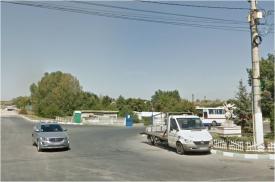

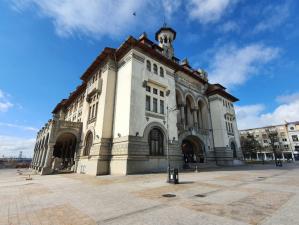
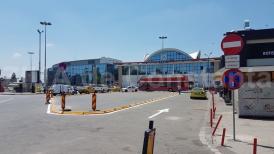
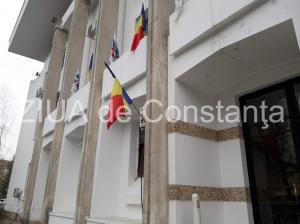

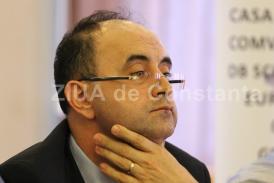

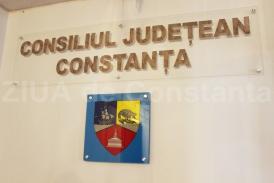
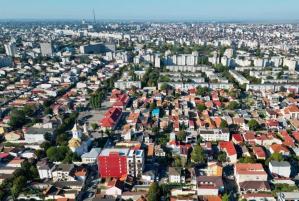
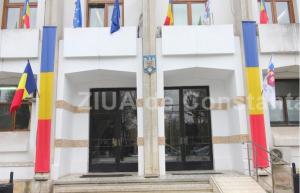
_thumb2.JPG)

